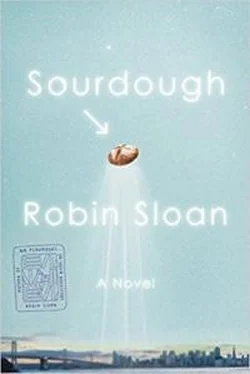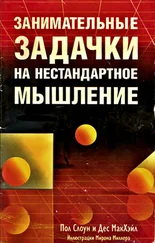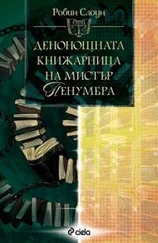You couldn’t not see it.
The loaf had a face.
It was an illusion, of course. Jesus Christ in an English muffin. It’s called pareidolia. Humans see faces in everything. Even so, the illusion was … compelling. This face was long and twisted, wide-eyed and openmouthed, Edvard Munch–like. Where the crust cracked, it formed furrows in the face’s brow, lines around its howling mouth.
I reached down with oven mitts and lifted the loaf from the baking stone, almost expecting the face to relax in relief. Its expression remained fixed, because it was, of course, not a face but a crispy crust. I plopped it down on the countertop, fished out my phone, and snapped a picture. I was about to send it to Arjun, but something made me pause. There was real pain in the phantom face. It wasn’t funny. It was disturbing. I deleted the photo.
In the bread book, Broom counseled that it was essential now to wait, to let the bread cool, to allow the glutens to complete their final binding, but I was hungry and I didn’t want to stare at the face any longer. With my bread knife (which CUSTOMERS WHO BOUGHT THIS ITEM ALSO BOUGHT), I sawed through the loaf at its widest point and, like a vision in the clouds twisting apart in the wind, the illusion broke. I looked at the bread’s cross section, the crumb, and I giggled a little. It didn’t look like the pictures in the book; this sourdough was not so perfectly inflated, its bubbles not so lacy. But, seriously … not too bad!
I made another cut, peeled away a rough slice, and blew across its surface, tossing it from one hand to the other. It was too hot to eat, but I began to eat it anyway, and it tasted just like the bread that came with the double spicy.
This was Beoreg’s sourdough. There was no disputing it. But as I took one mincing bite after another—I’d been waiting hours—the fact asserted itself: I’d made it myself, from nothing but flour and water and salt and a dollop of the Clement Street starter. The net cost of ingredients couldn’t have been more than a dollar, and now I had this enormous loaf of bread, my favorite bread, my serenity bread. I was disappointed not to have any spicy soup for sopping. I didn’t even have any butter. I ate it plain.
That loaf of bread was the first thing I’d ever prepared myself that did not come out of a box with instructions printed on the side. My apartment was suffused with its smell, the smell I knew and loved. I wanted to fish out my phone and dial the old number and cry out to Beoreg before he could put me on hold: I did it!
Instead, I wrote an email. Just a short message— Look what your number one eater made! —dispatched to the address he’d written on the menu, to which I attached a photo of myself, proudly holding up a sliver of a slice of sourdough, my cheeks full of the rest. Was it cute? It was cute. I sent it.
The twisted face in the crust was forgotten as I carved and ate, carved and ate, until the whole loaf was gone.
SHARING THE MIRACLE
THE NEXT MORNING it felt like it had been a dream, but there was the mess I’d left on the countertop, and there was the aroma, still lingering: evidence of the work I’d done, the thing I’d produced. I emailed Peter at General Dexterity to invoke one of my theoretical vacation days—I could almost hear his gasp across the city—then switched my phone to airplane mode and baked two more loaves.
This time, the dough was not so gloppy, the process not such a disaster. I waited serenely, watching three episodes of the dark serial drama while the dough fermented and rose, and another episode while the twin loaves baked.
But when I opened the oven door and pulled out the rack, I had to suck in a sharp breath. My first thought was: You have had a tiny stroke . Possibly stress-related. I’d read about neurological conditions that made it so you couldn’t recognize people’s faces; was I suffering from the opposite? Some sort of hyper-recognition? I looked around the kitchen, fixed my gaze on random objects: Cupboard. Faucet. Refrigerator. Did I see faces? I did not see faces. The power outlet looked like a little dude, but power outlets always look like little dudes.
I looked down again at the loaves on the baking stone, which, just as before, carried in their crusts the overwhelming illusion of dark eyes, upturned noses, fissured mouths.
Upon closer inspection, these faces were different from the last loaf’s. They weren’t disturbing. Their eyes squinted merrily and their mouths curled into ragged, jack-o’-lantern grins.
The bread knife was the solution to all my problems. I sawed and sawed until the faces were no more.
* * *
IT’S ALWAYS NEW AND ASTONISHING when it’s yours. Infatuation; sex; card tricks. How many humans have baked how many loaves of bread, across how many centuries? I’m sure Beoreg baked calmly, matter-of-factly, without paroxysms of cosmic delight. But that didn’t matter. For me, the novice, the miracle was intact, and I felt compelled by some force—new to me, thrillingly implacable—to share. I tied the sliced loaves into neat bundles with twine and bounded outside, still wearing the sweatpants I’d slept in.
My apartment was the lower of two units carved out of a dingy house on Cabrillo Street. My neighbor Cornelia lived upstairs. Our front doors were side by side on the face of the house, and I knocked on Cornelia’s now. We didn’t see each other that often, so when she appeared, her expression was cautiously curious.
I presented the twine-wrapped loaf and explained: “I … baked this for you?” Had I really? Was it possible? Did the universe permit feats of such profound creative alchemy? Apparently, it did.
Cornelia was, if not quite as impressed with me as I was, still at least medium-impressed. “What a nice surprise,” she said, accepting the gift, and lifted it to her nose, murmuring “Mmm” appreciatively, which is exactly the right thing to do when someone presents you with the second loaf of sourdough they’ve ever baked in all of history.
“I didn’t know you were a baker,” Cornelia said.
I told her I had not been until yesterday. She raised an eyebrow, seemed to reappraise the loaf in her hands; her impressed-ness modulated upward a degree.
There was still another loaf to share. I went to the house next door, its resident unknown, never before seen or even considered. No one was home—or they were, but they were spooked by the appearance of a wild-eyed woman in sweatpants alive to the miracles of the universe, cradling a mysterious bundle, with traces of dough drying on the front of her tech company T-shirt.
The next building, then. There were three doors, and I rang the bell attached to the first. A man came to the door, flabby and whiskered, a bit drowsy looking. Behind him, deeper in his apartment, I saw a television paused on a frame of a movie; from the color palette and aspect ratio, I guessed early 2000s superhero.
“Hello,” I said. “I live down the street. I was baking. I made too much.” I held out the loaf.
He looked skeptical. “Nah, thanks. That’s okay.”
I wanted him so badly to take it. “I used the starter from Clement Street Soup and Sourdough. Did you ever order from them? Two brothers? Double spicy?”
The movie-watcher shook his head slowly, and the muscles under his eyes were wary. “Sorry. I’ve got to go.” He closed the door, and I heard one, two, three latches click into place.
If I wanted to share this miracle—and I did—it would have to be with people who knew me.
* * *
AT THE SLURRY TABLE, when I unveiled my gift, Peter scooched his chair back apprehensively. “I don’t eat bread,” he reminded us. He said it like a ward against evil.
The other Slurry slurpers had no such compunctions. The slices I had sawed were thick and fluffy, and we slathered them with plum jam swiped from Chef Kate’s fancy toast station.
Читать дальше










